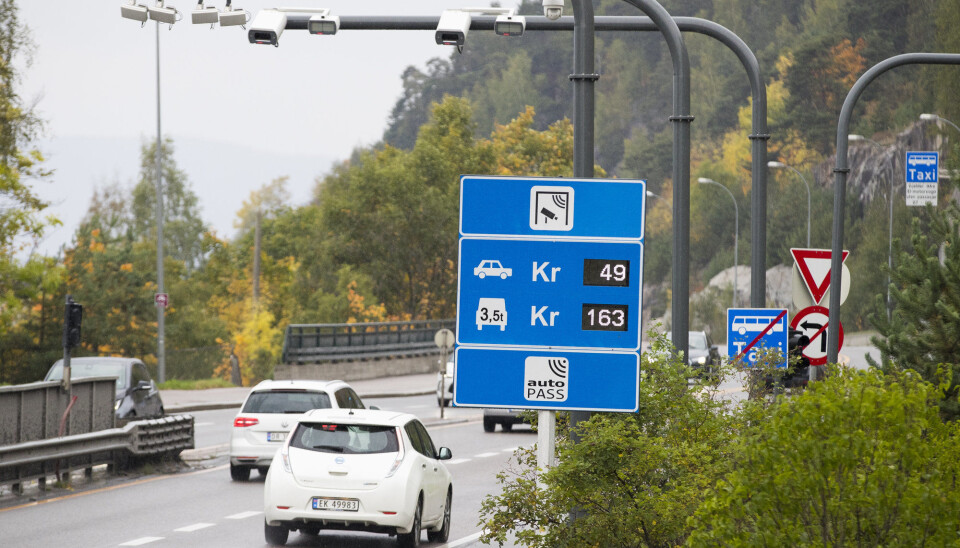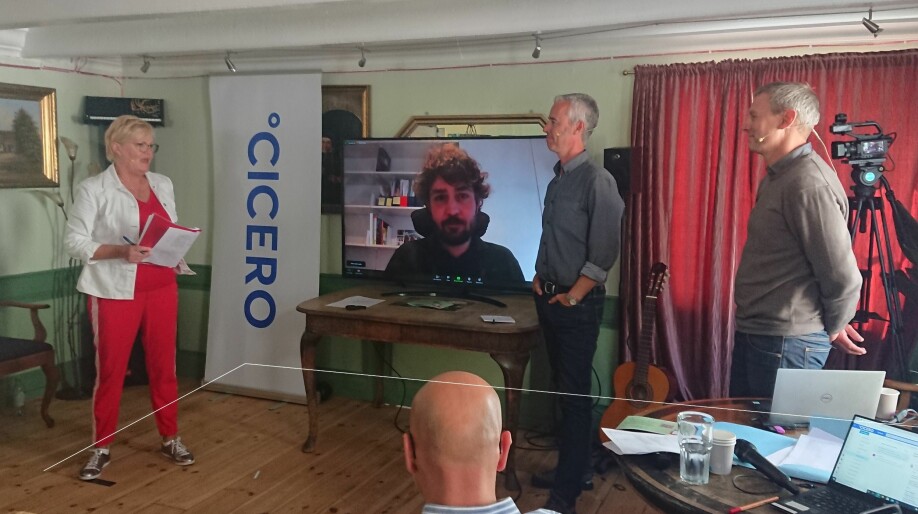
Arguing over road tolls can be good for the climate, researcher says
The debate over road tolls has helped Norwegians to talk about the politics of wealth distribution in the climate debate, researcher Tarje Wanvik says.
In advance of Norway’s 2019 municipal elections, a new group appeared on the political scene: people who were very opposed to road tolls. They not only called for a political movement, they also formed a completely separate political party: the People's Action No to More Road Tolls.
The party went to the polls to cut tolls.
Road tolls were unfair, they said. Why should only people with lots of money be allowed to drive in and out of cities?
Does this kind of resistance to the toll rings that encircle Norway’s bigger cities put a damper on the government’s efforts with climate measures? Or maybe there’s something to this debate on unfair climate measures?
Tarje Wanvik, a social geographer and researcher at NORCE in Bergen, has taken a closer look at the issue.
He gave a talk about tolls at a meeting organized by CICERO, the Center for International Climate Research at Arendalsuka, an annual political festival in southern Norway.
Distribution of wealth factors into the climate debate
Wanvik believes that the debate on tolls has helped Norwegians to talk more about politics of the distribution of wealth in the climate debate.
Who is hardest hit by these measures? Do some measures exclude people with fewer resources? When are they unfair?
“The distribution of wealth problem has taken root. This is what we are talking about now when we talk about climate policy,” he says.
Wanvik believes Norway will see a different type of climate discussion in advance of the country’s national elections in mid-September.
Why is it good to talk about social inequality?
Is this good for the climate? What if a discussion about social inequality hinders the introduction of effective climate measures?
There’s little doubt that road tolls in a ring around cities limit urban car traffic and are an effective climate measure, Lars Böcker says. Böcker is a researcher at the Institute of Transport Economics who also participated in the seminar.
“This is a good discussion for the climate, because it ensures that the country’s climate policy has some buy-in from the populace,” Wanvik says.
He believes that when we feel heard and get involved politically, it’s easier for us to accept measures that affect our everyday lives.

Opposition can create more sustainable development
Opposition to tolls is a constructive and positive force, instead of a negative one, Wanvik says. This opposition can make for more inclusive and sustainable urban development.
"The fact that people who will be subject to this policy actually agree that it will be implemented will make it more robust," he says. “I think this is something that has been missing in this debate so far.”
In this way, resistance to road tolls strengthens democracy, Wanvik said.
But he agrees that discussions about social inequality can make it take longer to agree on which climate measures are best.
A new UN climate report released in early August underscores the urgent need to introduce effective measures to combat climate change.
Why are people opposed to tolls?
People aren’t simply opposed to tolls because they are tired of paying to drive a car.
People are also against having tolls that encircle major cities because they intrude in the city and create an almost physical barrier between themselves and the city centre, Böcker said.
He has studied road tolls and describes two reasons for the ring tolls that have been built in Norway.
One relates to climate and the environment, because tolls lead to less traffic and help people get out of their cars and use buses and trains instead.
The second relates to finances, where money from the tolls goes to finance other road projects or bike and walking paths.
Wanvik points out a paradox here. Under these policies, tolls lead to less traffic, but also contribute to the development of more roads.
And if there’s one thing the researchers know, it is that more and better roads lead to more driving.
Wanvik fears that politicians will be too busy "paying back" people because they keep putting money in the ring tolls. As a result, Norwegian policy leads to the construction of roads, bridges and tunnels in natural or undeveloped areas.
“Nature is the loser in this scenario,” Wanvik says.
How can we make tolls more equitable?
If the Norwegian government wants climate measures to be more socially just — and to create less inequality — Wanvik believes it should be cheaper to use public transport.
“If it costs 59 kroner for a single mother in Laksevåg to take the bus with the children to the city, it will be cheaper for her to drive a car, despite the tolls,” he said. “We have to do something about public transport.”
He thinks the common perception about public transport is that accessibility is more important than price. But Wanvik believes price is just as important.
“Busses don’t need to be available all the time, but they should be affordable,” he said.
Translated by Nancy Bazilchuk































